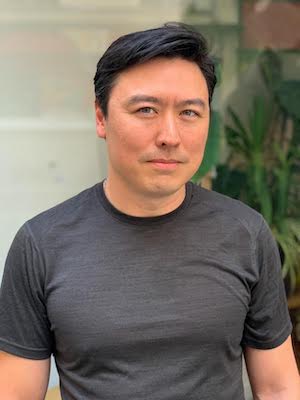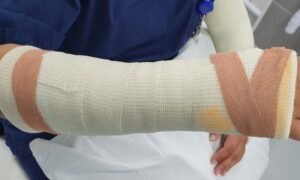(Editor’s note: This is Pt. 1 of a two-part post chronicling Stephen Heiner’s experiences in taking – and passing – the DELF French language proficiency test expats need for a 10-year residence visa as well as for most employment opportunities. You can jump to Pt. 2 here.)
One of the misconceptions many have before moving to France is that living here will make us “fluent” in the language in a short time: two-to-three years at the very longest. Not only have I come to appreciate that fluency in any language, including your native tongue, comes after 15-to-20 years, but that fluency in French will take at least that long for me, if not longer.
But that doesn’t mean I can’t get around or have conversations with strangers on a variety of topics. It just means I won’t be able to speak at great speed, have cultural landmarks and references readily at my command, and will sometimes lack the ability to speak about a complex idea. But that’s okay: those are not necessary parts of daily life in France.

There will be a test ….
What I didn’t know about before moving here is the high number of English speakers who do not speak French at even a basic level. This takes effort: you have to not take any classes to improve and you have to not speak French on a daily or even weekly basis. Naturally, the French expect you to speak French in their country and so they have two bars set in place to make life more inconvenient for those who choose not to develop basic competency in this language:
- A2 competency required for a 10 year carte de resident
- B1 competency required for citizenship
For those who aren’t familiar, these number and letter combinations refer to a classification system called DELF (Diplôme d’Etudes en Langue Française). The lowest level is A1 and the highest level is B2. From there it is taken up by DALF (Diplôme approfondi en Langue Française) which has levels C1 and C2. While B1 and B2 are often acceptable not just for citizenship but for many jobs in multilingual (but French-dominant) workplaces, C1 and C2 are part of the path to studying at the Masters level without having to take additional language classes or for more technical jobs that require greater French proficiency.
This isn’t the only type of test that is acceptable, but it is the most popular.
First, getting to A1
My journey of learning French has had many way stations. I was 17 the first time I bought a “how to learn French” course on cassette. It wasn’t very advanced but it got me going on some basics. I also took a couple courses at community college and made three weekend trips to Montreal to give some of that French a trot.
In the last year before I moved here I was meeting with a private tutor at least twice a month. When I arrived in 2013 I registered for a class at Alliance Francaise, down in the 12th arrondissement, and they gave me an assessment that placed me somewhere in A1. All of my previous studies led to my being classified as basically a beginner. But you have to start somewhere, right?
I was attracted to the pricing of the larger classes at Alliance Francaise, but the commute to the 12th took its toll, as did the fact that you could only move as fast as the slowest person in the class. But before too long our A1 class finished and we took a simulated DELF and I passed.
A1 competency is normally achieved by roughly 80-to-100 hours of study time. I spent a few more classes at the A2 level but didn’t choose to continue on, as I was at a better level than when I had arrived, and that made me more comfortable interacting with the French in general.
How to register for a DELF Test
Well even though I was in Paris, where we have a lot of DELF testing centers, I needed to find a date that worked for my schedule. I found a pretty comprehensive list of DELF testing sites in France and after some checking with dates that I expected to be traveling I found the best fit was a testing center in Annecy, snug up against the Alps, and just half an hour from the Swiss border. I had wanted to visit for some time, so why not for an exam?
The second reason I chose this testing center was because it was quite “advanced” in terms of registration for the test. A number of exam sites allowed you to “register” online for the test, but then they required you mail them documents and payment.
No ability to pay online!
So, I didn’t want to fuss with this: I wanted to register for the test and be done. I would still need to book a train and accommodations after that. So, if you would like that one-step online registration and payment convenience as well, and don’t “mind” trucking out to the Alps, I can recommend CILFA for DELF testing. Costs vary, but should not be much more than 100 euros for A2 registration.

How to study for the A2 DELF test
I’m flabbergasted to say this, but the official government website has some absolutely fantastic resources. Not only do they essentially provide you with a practice test that has answers you can check, but that practice test is almost exactly like the actual exam you will take. You can get all the information you need right on their site.
The A2 level presumes another 100-to-120 hours of study, bringing your total hours to 180-to-200. Some of the things you’ll be expected to know include:
- demonstrative adjectives (this, that, these, etc.)
- personal pronouns (I, you, we, etc.)
- possessive adjectives (mine, yours, hers, etc.)
- relative and interrogative pronouns (who, where, etc.)
- the imperfect tense (I routinely did something in the past)
- the passé compose tense (I did something in the past that has been completed)
- the future simple tense (I will do something)
- the conditional present (I “have to” or would “like to” do something)
- the imperative
- variations of asking questions
If you can competently deal with all these issues, and you have the vocabulary to match that knowledge, the A2 level will be an absolute breeze.

About the author:
Singaporean-born American Stephen Heiner has been living in Paris since 2013, what he hopes to be a permanent home after living in Asia and the United States for most of his life. While he has an undergraduate degree in literature, he also has an MBA, and he’s very much the man who enjoys studying financial statements as much as he enjoys reading essays by G.K. Chesterton or James Howard Kuntsler.
He visits his family in the U.S. and Singapore each year, but in the meantime enjoys his dream city, which he finally had a chance to move to after selling a company he built over a number of years.
You can find him on twitter and instagram @stephenheiner.
You can also follow his immigration journey on www.theamericaninparis.com, where Stephen also offers consulting to those interested in relocating to, and/or making a life in, France.
See more of Stephen’s posts on Dispatches here.














